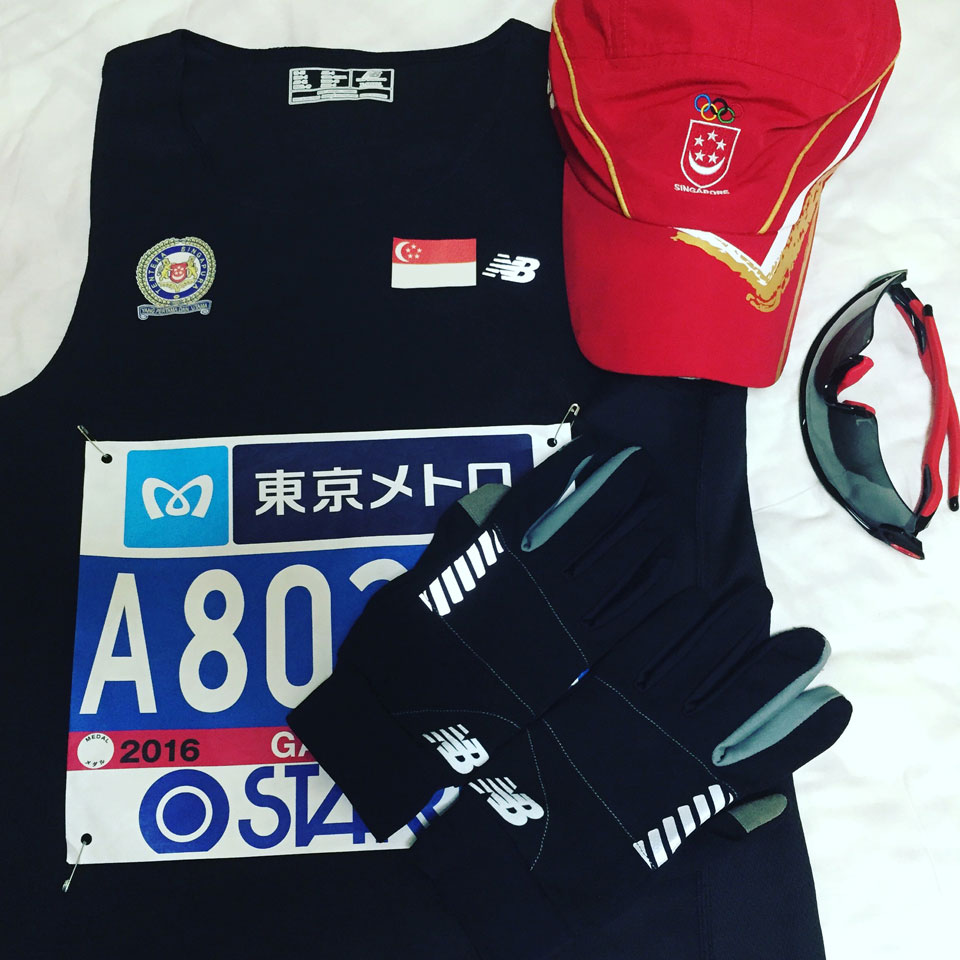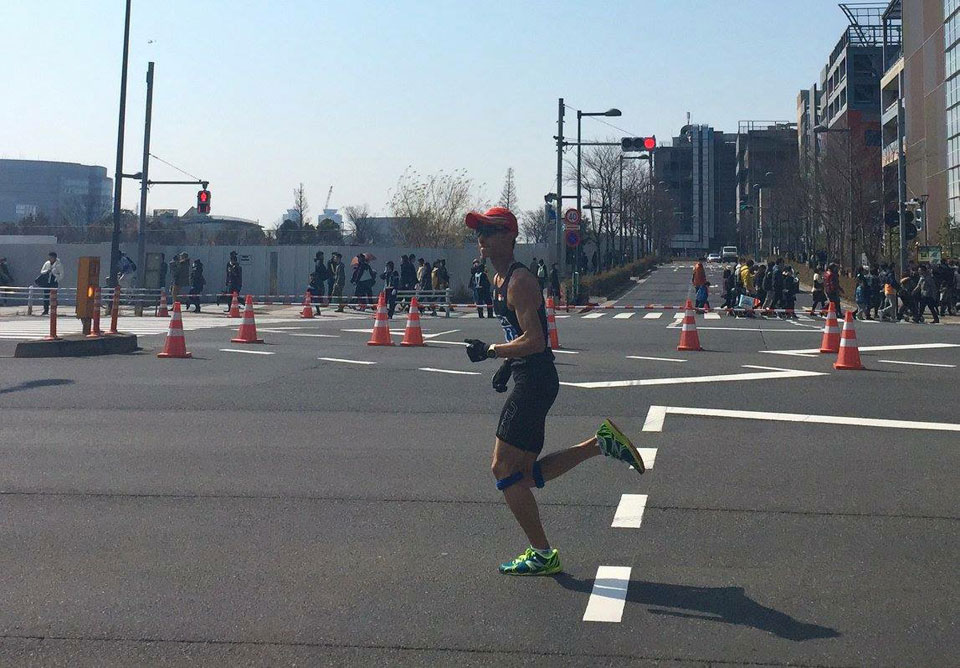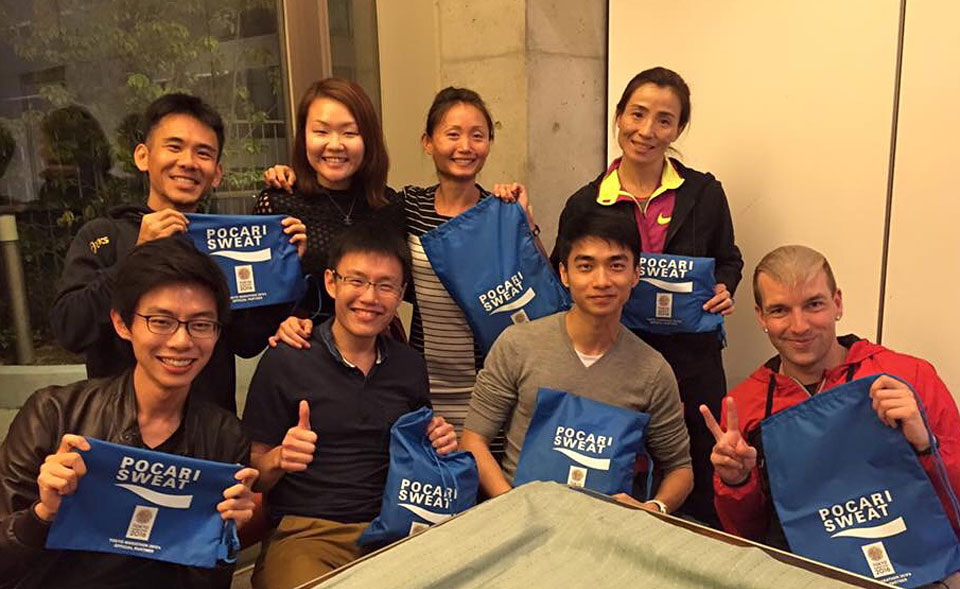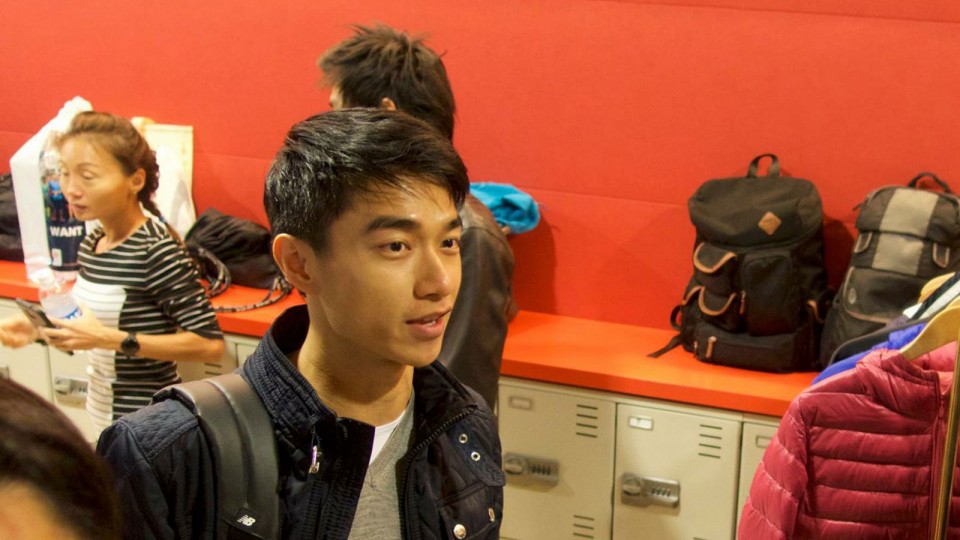Hometown hero Leo Fang Jian Yong has surprising and eclectic tastes: He listens to Timbaland, Jay Sean, Bruno Mars and Maroon 5. He recently graduated with honours from the prestigious University of London where he studied banking and finance, and his Facebook page favourites reveals a softer side: this dude is man enough to admit that he loves romantic movies.
If you want to swoon, go ahead. We spoke to him again after his recent Tokyo marathon. We admit to a bit of a crush on him. Once you read about him, you may develop one, too.
RS: After suffering muscle fatigue following your Tokyo Marathon finish, how is your recovery coming along?
Leo: It’s been good — better every day. Delayed Onset Muscle Fatigue is no picnic, but it’s slowly subsiding. I took two days off following Tokyo and tried to get in as much rest as I could. Then I slowly began making active recovery efforts like walking and swimming to speed things up a bit.
RS: You’re a Singapore-based athlete; what made you decide to run the Tokyo marathon?
Leo: I ended my 2015 track season on a good tone, finishing the 800-meter with a personal best of 1:53 at the World University Games, and I wanted to get back to basics and test my level of aerobic fitness. Besides, I’m the type of guy who never stops looking for new athletic challenges year-round.

RS: Why choose the Tokyo Marathon over other events staged throughout Asia or abroad?
Leo: I’ve run there in the past and I always found Tokyo — and everywhere else in Japan, for that matter — to be a terrific place for many reasons. The distance running scene is vibrant and exciting. Runners who live there can literally pick and choose from all sorts of road and track events every weekend, and the weather is great. Besides, with a relatively flat course to run at the Tokyo marathon, faster times are possible if a runner performs at optimal levels. I should add that Tokyo looks great on a running resume since it’s considered to be one of world’s six majors.
RS: Can you describe the Tokyo Marathon atmosphere and your goal?
Leo: The atmosphere was simply fantastic! There was so much going on and everyone was totally energized and ready to run their best race. I could not believe how many supporters turned out on race day; it felt as though everyone in the city of Tokyo came out to cheer on the competitors – even those from other nations. That much enthusiasm is contagious. My Tokyo goal was 2:28. I hit that pacing at a 26km simulation run two weeks earlier, so I felt prepared to repeat it on the raceday itself.

RS: Did you get off to a good start?
Leo: I did. Despite having to wait an anxious hour at the start line, we all took off around 9:10 a.m. It was a perfectly normal flag off, but the first kilometer was anything but normal because the track was so packed with runners, it was hard to find my race rhythm. Fortunately, by the 2km mark the field had thinned out nicely. At the half-way point, I was right on time at 1:15 and so I felt that I would make my 2:30 finish. That’s when I decided to pick up the pace to build in a time cushion, because I knew that the end of the race was going to be tough.
RS: Sounds like you were performing perfectly; what happened?
Leo: I was at around the 26km mark when I felt as though I had just been struck by a car! Intense gastric pain radiated throughout my body and this caused me to tense up immediately. To cope, I slowed my pace from 3:30 to a painfully slow 4:20. At the end, I managed to cross the finish line at 2:36, which beat my old personal best of 2:38 set six weeks earlier.
RS: What did you learn from this experience?
Leo: I learned (again) that there are numerous factors outside a runner’s control on race days and those factors can be worse than bad weather!
RS: But you pulled out a great result, right?
Leo: What can I say? I just kept going despite the pain. I think cheers from the supporters was a big reason I was able to continue. Besides, I have always believed in my heart that if something is too easy, it’s probably not worth doing!
RS: We understand that, on the night before the marathon, you got together with other Singapore athletes for a carb-load dinner. True?
Leo: We did and what a great time we had. This was a first for me and being together on the night before this big race made me feel very much at home. I’m particularly thankful to John and Makiko. They organized this shared meal and brought us all together. Nothing’s better than making new, like-minded friends in a foreign country!

Have you ever experienced the pain of Delayed Onset Muscle Fatigue after running a particularly daunting marathon? What steps did you take to recover?




